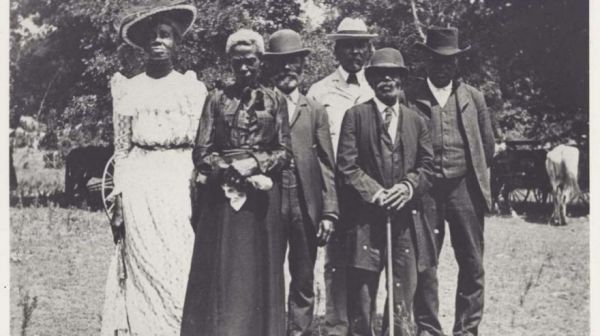
While news spread through the rest of the country that the Civil War was over, Confederates in Texas fought on for another six weeks until June 19, 1865, when General Gordon Granger announced in Galveston that slaves were now free. That date has been commemorated in Texas and elsewhere ever since as Juneteenth. But it didn't mean that the enslaved people of Texas were actually free from that day.
5. NOT ALL SLAVES WERE FREED INSTANTLY.
Texas is a large state, and General Granger's order (and troops to enforce it) were slow to spread. According to historian James Smallwood, many enslavers deliberately suppressed the information until after the harvest, and some beyond that. In July 1867 there were two separate reports of slaves being freed, and one report of a Texas horse thief named Alex Simpson whose slaves were only freed after his hanging in 1868.
6. FREEDOM CREATED OTHER PROBLEMS.
Despite the announcement, Texas slave owners weren't too eager to part with what they felt was their property. When legally freed slaves tried to leave, many of them were beaten, lynched, or murdered. "They would catch [freed slaves] swimming across [the] Sabine River and shoot them," a former slave named Susan Merritt recalled.
Read more facts about Juneteenth, its origins and annual celebration, at Mental Floss.





